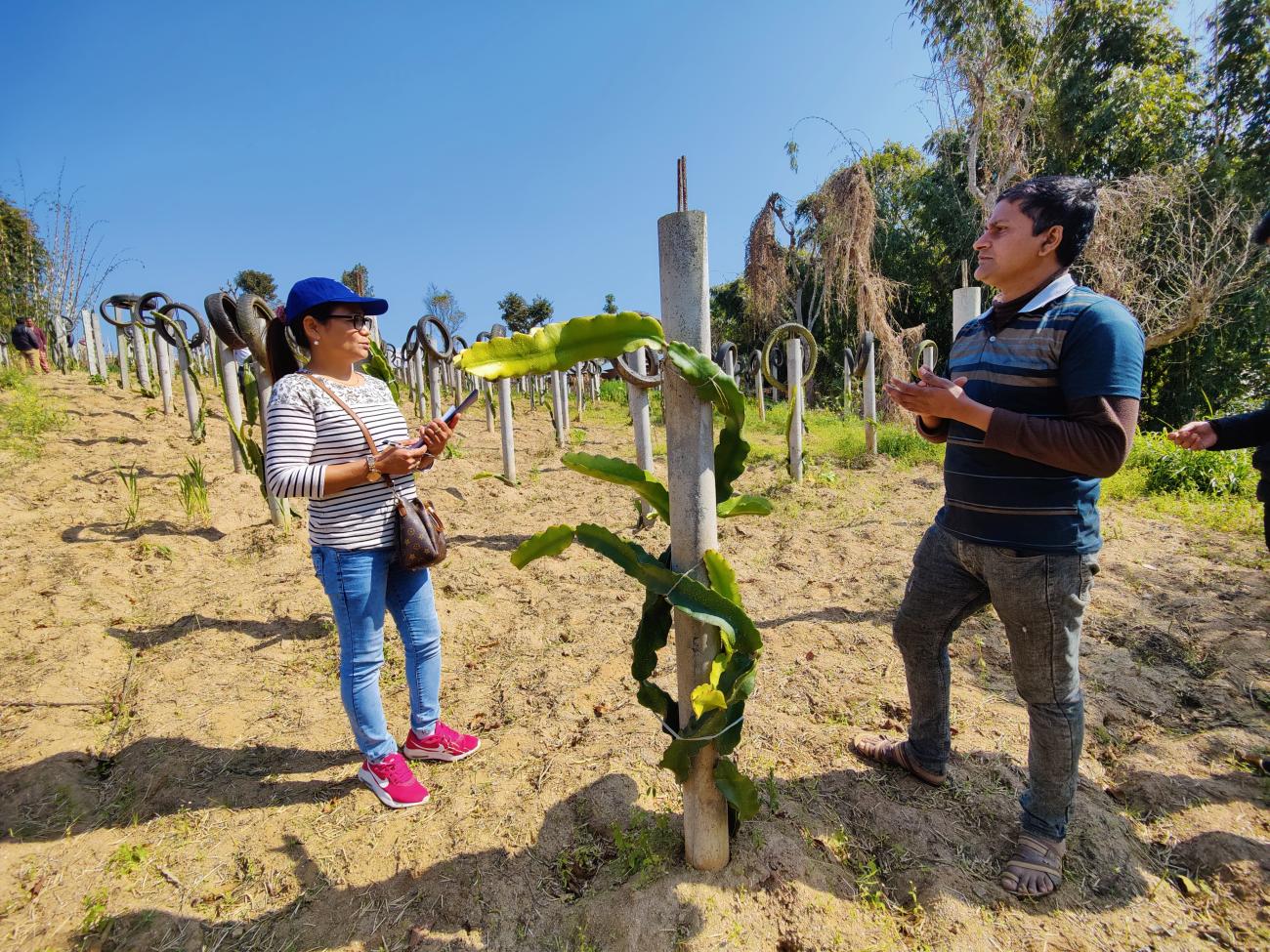Appraise migrants’ contribution to their home country’s development

Written on the occasion of International Day for Family Remittances 2022 – 16 June.
Surendra Bal, aged 48, is now a successful hotelier in Nepal. After working for about eight years in the hospitality sector in Japan and South Korea, he decided to use his remittances and skills gained abroad to establish a Guest House in Bhojpur district of Province 1, Nepal. Mr. Bal offers different services to make his business more attractive, such as the use of self-farmed organic products for authentic Nepalese cuisine for which the guest house is known and providing venues for workshops and seminars to customers, making his business more lucrative.
“Since most of the ingredients for my kitchen come from my own farm, I do not have to rely on external sources. Because of this, I am able to serve organic meals to my guests and provide employment opportunities for my neighbours,” says Mr. Bal proudly.
For Jitendra Bastola, the decision against remigration was made once he returned from Saudi Arabia in 2014. The 37 years old started dragon-fruit farming with 400 plants recently at his home district of Dhankuta, in Province 1. He was looking to do something new beyond traditional farming. One day, he came across an informative video about dragon-fruit farming on social media, and a few more researches followed. Then he came to the conclusion that he would go with it.
He was able to expand his initial plan of farming once he received reintegration support from the International Organization for Migration (IOM) under its sustainable reintegration programme for returnee migrants.
Anusha Ghising Tamang, 24 years of age, who hails from Dolakha district of Bagmati province, is currently working in a company in Saudi Arabia. She has been able to support her parents back home.
“It feels great when you can buy things with your own money rather than relying on somebody else even for small matters. Since I earn, I can make my own decisions,” says Ms. Ghising.
Foreign employment has been a common livelihood strategy for Nepalese households over the last 30 years. According to the Migration Profile of the country 2019, almost half of all Nepalis households have at least one migrant family member currently abroad or living in Nepal as a returnee migrant. Despite the depletion in the stock of outbound migrants since 2020 and slow resumption in 2021, remittance inflows claimed the largest share once again in South Asia, reaching 24 percent of GDP in 2021 (World Bank 2022).
Nepalese diaspora has also been playing an important role in support of their country in times of need—for instance, in response to Nepal Earthquake in 2015 and during the COVID-19 pandemic. In May 2021, when the country was being seriously affected by a second wave of COVID-19 virus in the country, Nepalis living abroad, such as in the Gulf region, Europe, and other parts of the world, mobilized to fundraise and swiftly send to Nepal the much-needed oxygen cylinders to save lives of their country people.
The mounting importance of human mobility globally and its impact is reflected in the Sustainable Development Goals, which have recognized migration and remittances’ critical role in sustainable development and reducing inequality.
However, further efforts should be made to enhance the skillsets of workers, incentives should be provided to increase the use of the formal channel for the transfer of remittances, and there should be better data management regarding foreign employment and remittances. At the same time, ensuring that migrants are safe and are not deprived of their human rights at every stage of the migration cycle is critical.
The economic disruption created by the COVID-19 pandemic has significant impacts on the global supply chain, travel, trade and economy. Migrant workers are among the most disproportionately affected population. Nepal is no exception. The pandemic has created widespread health and safety concerns in Nepal, resulting in rapid and widespread closure of economic activities. Families of migrant workers that lost their jobs abroad could no longer rely on the remittances sent by their family members, and at a time when more jobs and businesses were lost in Nepal, the economic situation for many families was extremely challenging.
During the pandemic, approximately one million Nepali migrants returned to Nepal, among which significant proportions are migrant workers, according to a study report by IOM and the Ministry of Labour, Employment and Social Security.
Migrants do not only contribute with remittances and transfer of funds, but they also contribute by bringing back home new skills and education, as Surendra Bal did. “Besides learning technical skills in the hospitality sector, discipline and hard work are what I learnt in Japan,” says Surendra.
Mainstreaming the social and financial capitals by which migrants contribute during their employment abroad and once they return home, in support of the national economy and their families, would help achieve sustainable development.







